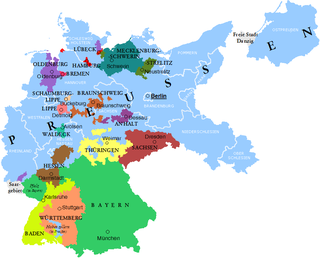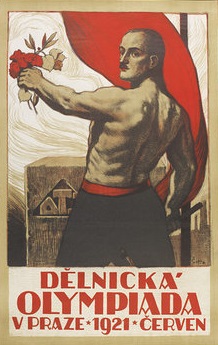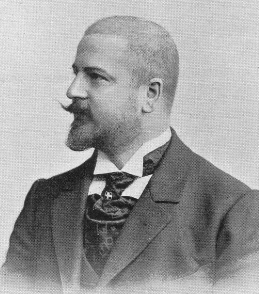
The 1988 UEFA European Football Championship final tournament was held in West Germany from 10 to 25 June 1988. It was the eighth UEFA European Championship, which is held every four years and supported by UEFA.

The 2005 FIFA Confederations Cup football tournament was the seventh FIFA Confederations Cup. It was held in Germany between 15 June and 29 June 2005, as a prelude to the 2006 FIFA World Cup. The tournament was won by 2002 FIFA World Cup winners Brazil, who defeated Argentina 4–1 in the final at the Waldstadion in Frankfurt. The final was a rematch of the Copa América final also won by Brazil. It was Brazil's second win at the Confederations Cup.

The Waldstadion, currently known as Deutsche Bank Park for sponsorship purposes, is a retractable roof sports stadium in Frankfurt, Hesse, Germany. The home stadium of the football club Eintracht Frankfurt, it was opened in 1925. The stadium has been upgraded several times since then; the most recent remodelling was its redevelopment as a football-only stadium in preparation for the 2005 FIFA Confederations Cup and 2006 FIFA World Cup. With a capacity of 58,000 spectators for league matches, it is the seventh largest football stadium in Germany. The stadium was one of the nine venues of 2011 FIFA Women's World Cup, and hosted four matches including the final. It will also host five matches of the UEFA Euro 2024.

The 1959–60 European Cup was the fifth season of the European Cup, Europe's premier club football tournament. The competition was won by Real Madrid, who beat Eintracht Frankfurt 7–3 in the final at Hampden Park, Glasgow, on 18 May 1960. It remains the record score for the European Cup final. It was Real Madrid's fifth consecutive European Cup title, which is a feat that no other club has matched.
Waldstadion is the name of several stadia or football grounds in Germany and Austria:
The 1993–94 UEFA Cup was the 23rd season of Europe's then-tertiary club football tournament organised by UEFA. The final was played over two legs at the Ernst-Happel Stadion, Vienna, Austria, and at San Siro, Milan, Italy. The competition was won by Italian club Internazionale, who beat Austria Salzburg of Austria by an aggregate result of 2–0, to claim their second UEFA Cup title in a span of four years.
The 1980–81 UEFA Cup was the 10th edition of the UEFA Cup, the third-tier club football competition organised by UEFA. The final was played over two legs at Portman Road, Ipswich, England, and at the Olympic Stadium, Amsterdam, Netherlands. It was won by Ipswich Town of England, who defeated AZ Alkmaar of the Netherlands by an aggregate result of 5–4 to claim their only UEFA Cup title.
The 1979–80 UEFA Cup was the ninth season of the UEFA Cup, the third-tier club football competition organised by UEFA. The final was played in West Germany over two legs, at the Bökelbergstadion., Mönchengladbach, and at the Waldstadion, Frankfurt. It was won by Eintracht Frankfurt, who defeated title holders and fellow West German side Borussia Mönchengladbach on the away goals rule after a 3–3 aggregate draw to claim their first UEFA Cup title.
The UEFA Women's Cup 2001–02 was the first edition of the women's football UEFA European club competition. It took place during the 2001–02 season, from August 2001 to May 2002.

Albert Becker, also known as Alberto Becker, was an Austrian–Argentine chess master.

The Bezirksliga Main-Hessen was the highest association football league in the German state of Hesse and the Prussian province of Hesse-Nassau from 1923 to 1927, when the league was replaced by the Bezirksliga Main-Hessen.

Socialist Workers' Sport International was an international socialist sporting organisation, based in Lucerne. It was founded in 1920, and consisted of six national federations at the time of its foundation. Initially it was known as International Association for Sports and Physical Culture. Informally it was known as the Lucerne Sport International. It adopted the name SASI in 1926. The Austro-Marxist Julius Deutsch was the president of SASI.
The 1991 Frankfurt Galaxy season was the inaugural season for the franchise in the newly created World League of American Football (WLAF). The team was led by head coach Jack Elway, and played its home games at Waldstadion in Frankfurt, Germany. They finished the ten game season with a record of seven wins and three losses, the third best record in the league well ahead of some 5-5 teams, but unfortunately also third place in the dominant European Division, so no play-off berth for Frankfurt while the other two Euro teams advanced to the World Bowl.
The 1925 German football championship, the 18th edition of the competition, was won by 1. FC Nürnberg, defeating FSV Frankfurt 1–0 after extra time in the final.
International Workers' Olympiads were an international sporting event arranged between 1925 and 1937 by Socialist Workers' Sport International (SASI). It was an organisation supported by social democratic parties and International Federation of Trade Unions. Workers' Olympiads were an alternate event for the Olympic Games. The participants were members of various labor sports associations and came mostly from Europe. Nowadays the CSIT World Sports Games are the successor sports events of the International Workers' Olympiads. The "World Sports Games" is the main highlight and a new brand of the International Workers and Amateurs in Sports Confederation (CSIT). It is a sports event for thousands of workers and amateurs held every two years. The CSIT is an international multi-sports organization.

The 1925 Workers' Summer Olympiad was the second edition of International Workers' Olympiads. The games were held from July 24 to July 28 at Frankfurt am Main in Germany.

The 1937 Workers' Summer Olympiad was the sixth edition of International Workers' Olympiads. The games were held from 25 July to 1 August at Antwerp in Belgium. They were originally planned for Barcelona 1936, but cancelled due to the outbreak of the Spanish Civil War.

Finnish Workers' Sports Federation football team was an association football team representing the Finnish Workers' Sports Federation (TUL) in 1921–1950. At the time, the sport in Finland was divided as the leftist TUL was isolated from the right-wing sports movement. In football, the TUL clubs and the Finnish Football Association (SPL) clubs competed in their own championship series and the Finland national football team was selected of the SPL players only. The TUL football team participated the International Workers' Olympiads in 1925, 1931 and 1937 and the Moscow Spartakiad in 1928.

1921 Workers' Olympiad was the first unofficial edition of the International Workers' Olympiads, organized by the 1920-established Lucerne Sport International and hosted by the Czechoslovakian Workers' Gymnastic Association in Prague, Czechoslovakia. The original scheduled date was August, but finally the games were held from 25 to 29 June 1921. The first official Workers' Olympiads were held in 1925 in Schreiberhau (Winter) and Frankfurt am Main (Summer) in Germany. The unofficial Czechoslovakian games were staged again in 1927 and 1934.

August Lehr was a German racing cyclist.












